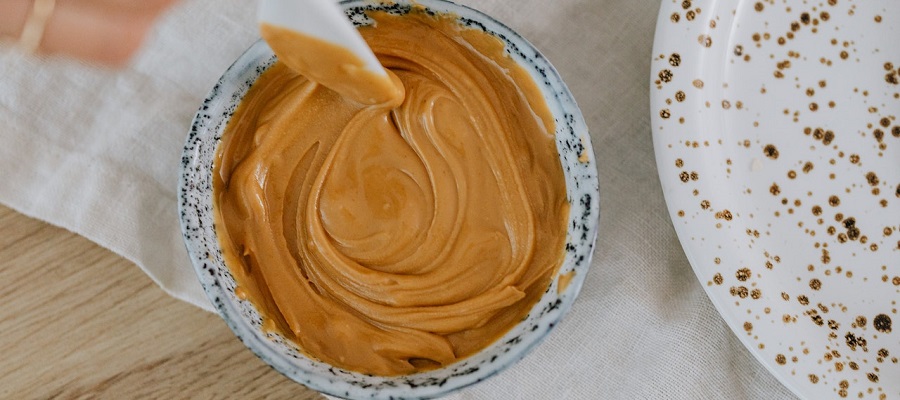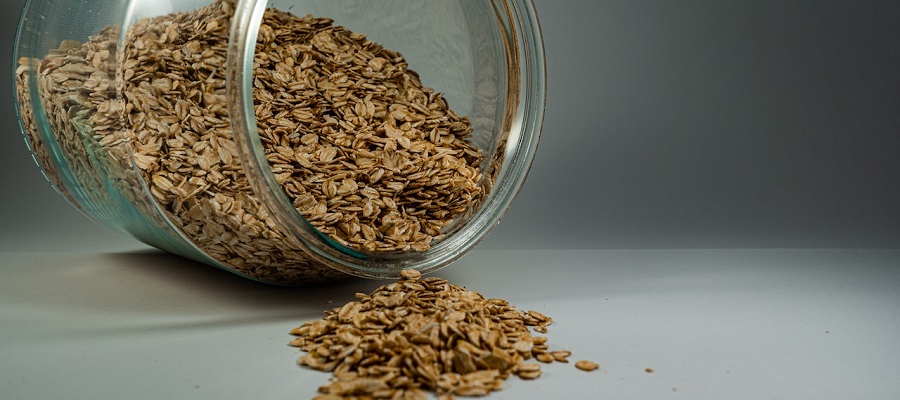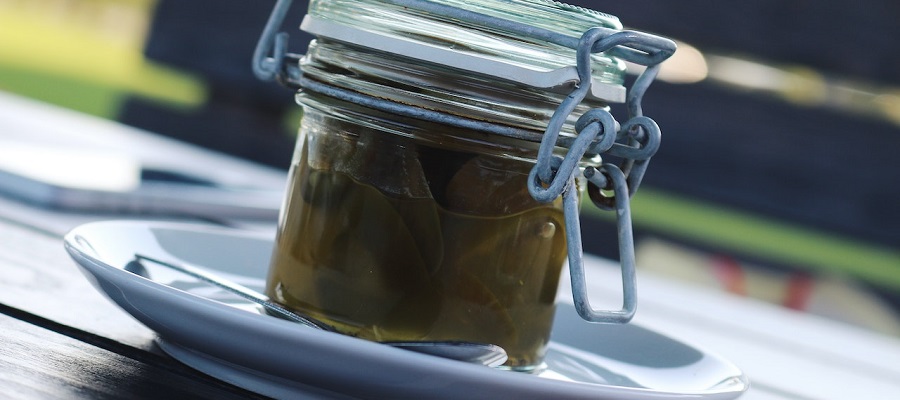Peanut butter is a spread made from ground, dry-roasted peanuts. It is known for its creamy texture and nutty flavor, and it is often used as a sandwich filling or as an ingredient in a variety of dishes.
Peanut butter is a good source of nutrients, including protein, healthy fats, and a variety of vitamins and minerals. It is also low in calories and fat and is a good source of antioxidants.
There are many different types of peanut butter, including smooth, crunchy, and natural varieties. Peanut butter can be purchased at the store or made at home, and it can be flavored with a variety of ingredients, such as honey, chocolate, or spices.
Peanut butter can be eaten on its own as a spread or used as an ingredient in a variety of dishes, including cookies, cakes, and sauces. It can also be added to smoothies, protein bars, and other recipes to add flavor and nutrients.
It's important to handle peanut butter safely to reduce the risk of foodborne illness. It's a good idea to wash peanuts thoroughly before using them to make peanut butter and to store peanut butter in the refrigerator to ensure the best quality and safety.
Is peanut butter healthy?
Peanut butter is generally considered to be a healthy food, as it is a good source of nutrients, including protein, healthy fats, and a variety of vitamins and minerals. It is also low in calories and fat and is a good source of antioxidants.
However, it's important to consume peanut butter in moderation, as it is high in calories and fat, and it can contribute to weight gain if consumed in large amounts. It's a good idea to pay attention to portion sizes and to be aware of the total amount of calories and fat that you are consuming when eating peanut butter.
Peanut butter can be a healthy choice when consumed as part of a balanced diet that includes a variety of other whole foods, such as fruits, vegetables, and whole grains. It's also important to choose peanut butter that is made with simple ingredients, such as peanuts and salt, and to avoid peanut butter that is high in added sugars, sodium, and other additives.
Overall, peanut butter can be a healthy choice when consumed in moderation as part of a balanced diet. If you have any concerns about eating peanut butter or if you have a peanut allergy, it's a good idea to speak with your healthcare provider.
The average number of calories in it
The number of calories in peanut butter can vary depending on the brand, the type, and the serving size. In general, a 2-tablespoon serving of peanut butter (32 grams) contains about 188 calories. This serving size is considered to be a moderate portion and is equivalent to about the size of a ping-pong ball.
Peanut butter is a high-calorie food, and it is important to pay attention to portion sizes when consuming it. Consuming too much peanut butter can contribute to weight gain, so it's a good idea to be mindful of the total amount of calories and fat that you are consuming when eating peanut butter.
It's also a good idea to choose peanut butter that is made with simple ingredients, such as peanuts and salt, and to avoid peanut butter that is high in added sugars, sodium, and other additives. Choosing peanut butter with fewer ingredients and fewer additives can help to ensure that you are getting the most nutrients and the fewest calories and fat.
Overall, peanut butter can be a healthy choice when consumed in moderation as part of a balanced diet, but it's important to pay attention to portion sizes and to be aware of the total amount of calories and fat that you are consuming.
its average prices
The price of peanut butter can vary depending on a variety of factors, such as the brand, the type, and the location. In general, peanut butter is not considered to be a particularly expensive food, and it is often sold in large containers, which can provide good value for the price.
The price of peanut butter can range from about $3 to $7 for a 16-ounce (454-gram) jar, depending on the brand and the type. Natural peanut butter, which is made from ground peanuts and typically does not contain added sugars or oils, may be more expensive than regular peanut butter, which is made from ground peanuts and may contain added ingredients.
It's a good idea to compare prices and read labels carefully when purchasing peanut butter to ensure that you are getting the best value for your money. You can also make peanut butter at home, which can be a more economical option. Homemade peanut butter can be made with a food processor or blender and can be flavored with a variety of ingredients, such as honey, chocolate, or spices, to suit your personal taste.


